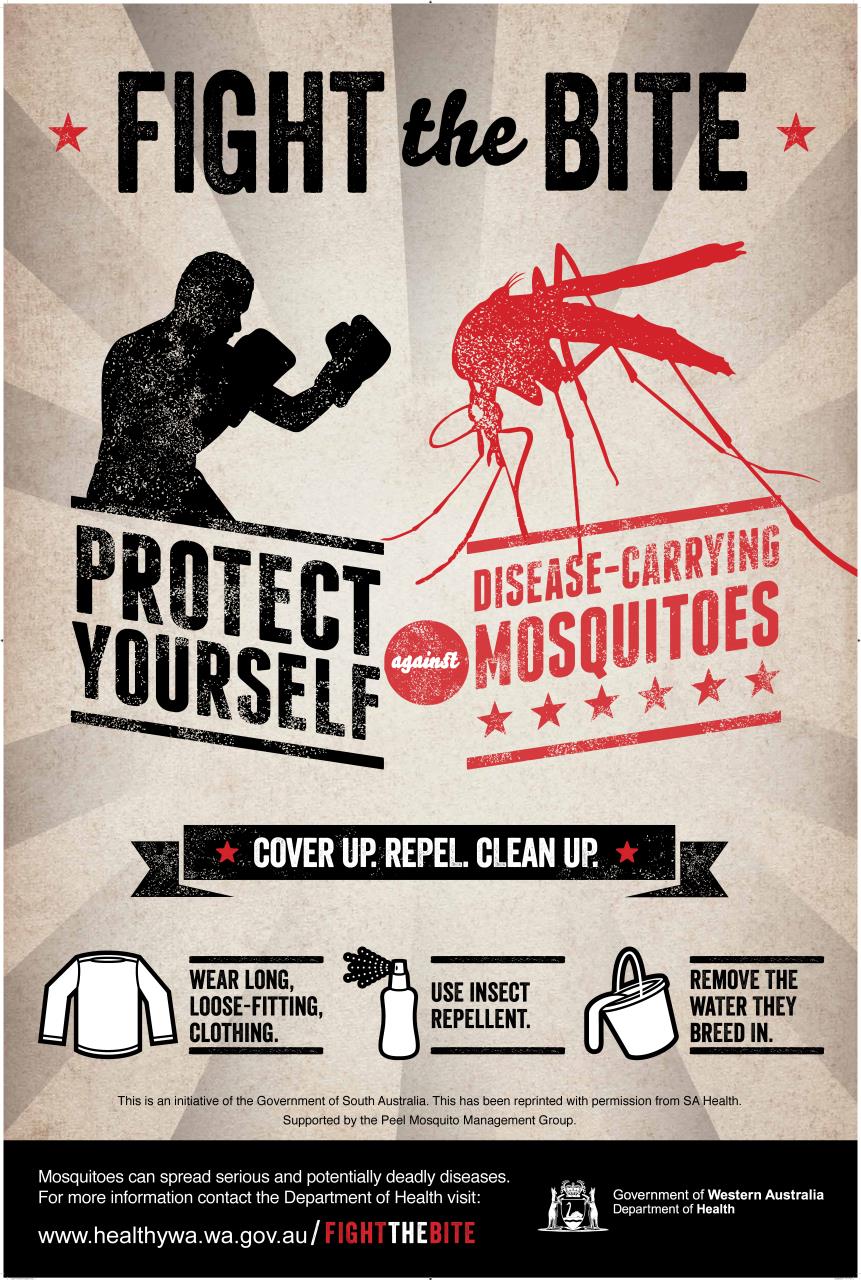Published on Wednesday, 3 May 2017 at 12:00:00 AM
The Shire of Ashburton is reminding residents and travellers in the north of Western Australia to take precautions to avoid mosquito bites.
The warning follows a significant increase in Ross River virus (RRV) cases in the western Kimberley, as well as evidence of the first Murray Valley encephalitis (MVE) activity for 2017.
WA Health’s Senior Scientific Officer, Dr Andrew Jardine, said there had been a confirmed detection of MVE in the east Kimberley region and probable detections of MVE and Kunjin virus in the Pilbara region.
“While no human cases of MVE or Kunjin have been reported in WA since 2011, evidence of the viruses has now been detected in sentinel chicken flocks, which are used as an early warning system for virus activity,” Dr Jardine said.
“Both viruses are only carried by mosquitoes, and while the risk of being infected and becoming unwell is low, the illnesses can be severe.
“It is important that people in the north of WA protect themselves from mosquito bites."
Initial symptoms of MVE include fever, drowsiness, headache, stiff neck, nausea and dizziness. People experiencing these symptoms should seek medical advice quickly. In severe cases, people may experience fits, lapse into a coma, and may be left with permanent brain damage or die.
In young children, fever might be the only early sign, so parents should see their doctor if concerned, particularly if their child experiences drowsiness, floppiness, irritability, poor feeding, or general distress.
Dr Jardine said Kunjin virus usually caused milder symptoms than MVE virus, but in rare cases could also cause severe symptoms, including headache, neck stiffness, fever, delirium and coma.
Symptoms of infection with RRV include painful or swollen joints, sore muscles, skin rashes, fever, fatigue and headaches which can last for weeks or months.
There are no specific cures or vaccines for any of these viruses so it is important that people take care to prevent being bitten by mosquitoes.
“People do not need to alter their plans to visit the Kimberley or Pilbara regions, but it is important they take some simple steps to avoid mosquito bites when camping, fishing or undertaking any other activity outdoors,” Dr Jardine said.
Simple steps to avoid mosquito bites are:
- avoid outdoor exposure around dawn and early evening
- wear protective (long, loose-fitting, light-coloured) clothing when outdoors
- apply a personal repellent containing diethyl toluamide (DEET) or picaridin to exposed skin or clothing. The most effective and long-lasting formulations are lotions or gels. Natural or organic repellents are generally not as effective as DEET or picaridin or need to be reapplied more frequently.
- use mosquito coils and mosquito lanterns and apply barrier sprays containing bifenthrin in patio and outdoor areas around houses
- ensure insect screens are installed and in good condition on houses and caravans
- use mosquito nets and mosquito-proof tents when camping
- ensure infants and children are adequately protected against mosquito bites, preferably with suitable clothing, bed nets or other forms of insect screening.
For more information about mosquito prevention visit: http://healthywa.wa.gov.au/Healthy-living/Prevent-mosquito-bites

Back to All News